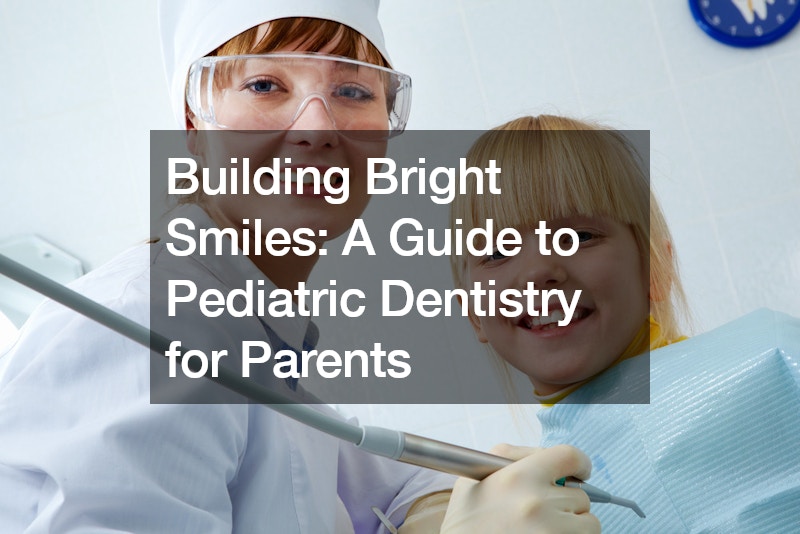As parents, we’re constantly bombarded with advice on how to keep our children healthy and happy. From regular doctor check-ups to ensuring they eat their vegetables, there’s a lot to juggle. But one area that sometimes gets overlooked is pediatric dental care. This comprehensive guide will explore the importance of pediatric dentistry, why it matters, and what you can do to ensure your child’s smile stays bright and healthy.
What is Pediatric Dentistry?
First things first, let’s define pediatric dentistry. Think of pediatric dentists as the specialists in children’s dental health, much like pediatricians are for overall health.
These professionals undergo additional training, typically two or more years after dental school, to focus specifically on the dental needs of infants, children, teens, and individuals with special healthcare needs. This additional training equips them with the expertise to provide comprehensive care and address the unique challenges that come with treating young patients.
The Importance of Baby Teeth
You might wonder, why fuss over baby teeth when they’re just going to fall out anyway? Well, it turns out baby teeth play a crucial role in your child’s overall health and development. Not only do they aid in speech development, but they also help with proper nutrition by enabling your child to chew effectively. Additionally, baby teeth act as placeholders for adult teeth, guiding them into the correct position as they emerge. Neglecting baby teeth can lead to pain and infection, as well as impact your child’s ability to eat and sleep comfortably.
Furthermore, the health of baby teeth can impact the health of permanent teeth. Decay or early loss of baby teeth due to neglect can lead to misalignment issues in the emerging permanent teeth. This can result in costly orthodontic treatments later on to correct the alignment problems. Moreover, maintaining good oral hygiene habits from an early age sets the foundation for a lifetime of healthy dental practices. Teaching children to care for their baby teeth instills habits that will benefit their oral health throughout their lives, reducing the risk of dental issues such as cavities, gum disease, and tooth loss in adulthood. Therefore, ensuring proper care and attention to baby teeth is essential for both short-term and long-term oral health outcomes.
When to Visit the Dentist
So, when should you schedule your child’s first dental visit? The general recommendation is as soon as the first tooth appears or by their first birthday. This early start ensures that your child gets accustomed to dental visits from a young age and allows their pediatric dentist to identify and address any issues early on. Plus, starting dental care early sets the foundation for lifelong oral health habits.
Managing Dental Anxiety
One common concern among parents is how to handle dental anxiety in children. It’s natural for kids to feel apprehensive about visiting the dentist, but effective communication can make a world of difference. Pediatric dentists are trained to create a positive and comfortable environment for young patients, using gentle language and imagery to ease fears. Being honest with your child about what to expect while choosing your words carefully can help alleviate anxiety and build trust.
Additionally, parents can play a crucial role in managing their child’s dental anxiety by preparing them before the dental visit. This can include discussing the importance of dental check-ups and addressing any concerns or questions the child may have. Encouraging relaxation techniques such as deep breathing or visualization can also help children feel more calm and in control during their appointment. Furthermore, choosing a pediatric dentist who specializes in treating anxious children and provides amenities such as soothing music or distraction tools can further enhance the experience.
Preventing Tooth Decay
Prevention is key when it comes to dental health, and there are several steps parents can take to keep tooth decay at bay. It starts with diet; limiting sugary drinks and snacks can significantly reduce the risk of cavities. Establishing a routine for brushing and flossing, starting as soon as your child’s first tooth emerges, is essential for maintaining good oral hygiene. And remember, never put your child to bed with a bottle containing milk or juice, as this can increase the risk of cavities.
In Closing
Pediatric dentistry plays a vital role in ensuring your child’s overall health and well-being. By prioritizing regular dental visits, practicing good oral hygiene habits, and making dental care a positive experience, you can set your child up for a lifetime of healthy smiles. So, don’t forget to schedule that first dental appointment; your child’s bright smile depends on it!
.

